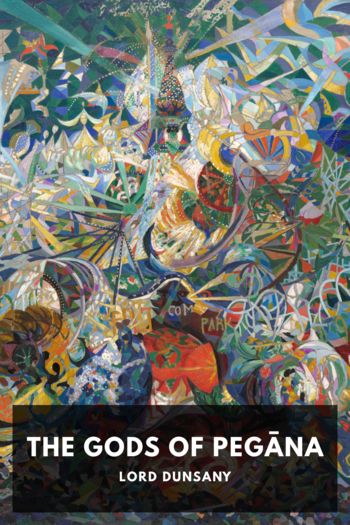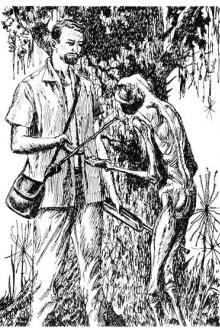Tarashana by Rachel Neumeier (best novels to read for students .TXT) 📗

- Author: Rachel Neumeier
Book online «Tarashana by Rachel Neumeier (best novels to read for students .TXT) 📗». Author Rachel Neumeier
“I grant your request. Your actions are not forgotten, but I forgive them.” My father paused.
Hokino straightened and looked up, but he said nothing, only waited.
My father gave him a little nod and went on. “Hokino inKera, however you came here or for whatever reason, I say you are now a guest of the inGara. Obviously an inKera warrior has no right to interest himself in any possession of inGara, but everyone knows young men benefit from the advice and example of respected warriors. While you are our guest, you may therefore instruct or correct any of our young men if you wish. You may stand.”
Hokino bowed once more and said, “Lord, I am grateful for your generosity.” Then he got to his feet.
My father looked at Aras. “I hope,” he said, “That you have nothing else to tell me.”
“Not at the moment, lord,” Aras assured him. My father nodded and turned away to walk on up the slope.
-12-
Hokino did not look at his son. Instead, he came to walk beside Aras. He said wryly, “That was uncomfortable. But I set no fault against you for it.”
Aras smiled, sudden and vivid. “You know you have no reason to set fault against me, Hokino inKera. You know very well you should have come down the moment you saw me.”
“That would have been less embarrassing,” Hokino agreed. “You are entirely correct, but fortunately, embarrassment does a man no lasting harm, especially when he has earned it through some foolish mistake. I do not look forward to Garoyo inGara returning my knife. I am sure he is clever enough to do it in a way that embarrasses me again. Then my brother will have something to say to me. And he will say enough already.” He paused to let the subject turn. Then he said, “You came here to speak to the avila? Of course you did.” He glanced at my younger brother, still not looking at his son, who had come to walk on Raga’s other side. Arayo ignored his father with equal care. Hokino said to Raga, “I have seen you much with her, young warrior.”
Raga grinned at him. “You have, and I am glad it was not an enemy watching because I never guessed anyone was there. I am also glad I am not a warrior, as then that failure would embarrass me. Embarrassment may do no lasting harm, but I would not have enjoyed listening to my father pointing out my mistakes.”
“Ah.” Hokino looked at him keenly. “Young poet. You are a son of Marag inGara, I think.”
“Yes,” agreed Raga, but immediately went on. “The avila does not speak. I have taught her some taksu, so she understands something of what I and other people say to her, but she does not speak in our tongue. I have learned a little of the avila tongue—a very little—but she does not speak that either. I may not pronounce the words correctly, but I do not think that is the difficulty. I think she either cannot or will not speak in any language.”
“Nor will she write, I understand,” said Aras. “Or had that changed since I was informed?”
Raga nodded. “That has not changed, lord. She will not write, not in any language, though she can read the script her own people write. I have one scroll in the avila tongue—”
“Lasije,” said Aras.
“Yes, lasije, that is the name of their spoken language, but if you will forgive me for correcting you, lord, the Tarashana call their written language tanije. But when I showed her the scroll, though she took it and seemed to read some of it, she would not take a quill and write anything, in tanije or in any other tongue.”
“Indeed,” said Aras. “Thank you for the correction, Raga. I did not know the Tarashana had different names for their spoken and written languages.”
“I am glad to explain this,” my brother began eagerly. “Tanije is like a different tongue entirely, each word made as one symbol, but the symbols are complicated. The words in tanije relate to one another, one sees it in the patterns of the written words, but they do not relate to the sounds of the spoken tongue as is the way for taksu or darau—”
I bumped my brother’s shoulder with mine to cut him off. “Once a poet begins to explain something, he will speak for a year,” I told Aras. “You may ask Raga anything, but we are coming to the wagon now, so perhaps you may wish to ask later. I warn you, my younger brother will also ask you many, many questions about every possible matter.”
Raga grinned. “I will!” he agreed. “I have never met a Lau, nor a Lau lord, nor a Lau sorcerer, nor a Lau scepter-holder, so I fear I will forget courtesy. You must correct me if I ask too many questions or if my questions offend you in any manner. I am very accustomed to being corrected for that kind of failing. I mean no offense when I ask, can you see the Tarashana woman’s thoughts yet?”
We were close enough now that Aras should have been able to see anyone’s thoughts, but he answered thoughtfully, “I take no offense, but no. I see nothing clearly, not yet. I can barely tell someone is there. Perhaps the Tarashana are so different from Ugaro or Lau or even Lakasha that I cannot see her thoughts properly. That would certainly be unfortunate.” He paused to study the wagon and the surrounding area.
The wagon rested perhaps half a bowshot farther, in a small meadow where the ground was nearly level. To one side, the roots of the mountain humped up toward the higher slopes. To the other, a little path led down toward the lake. My mother was coming along that path now, with Lalani and some





Comments (0)